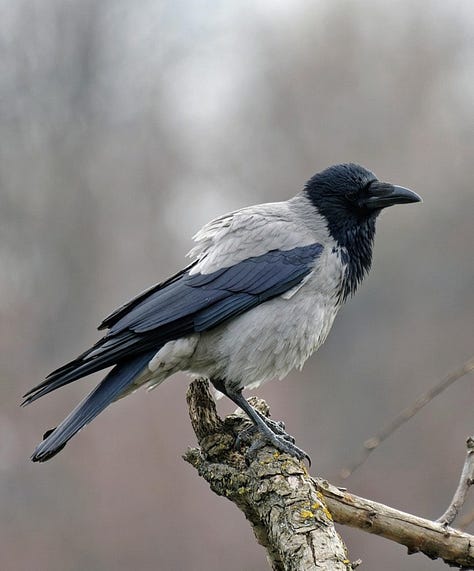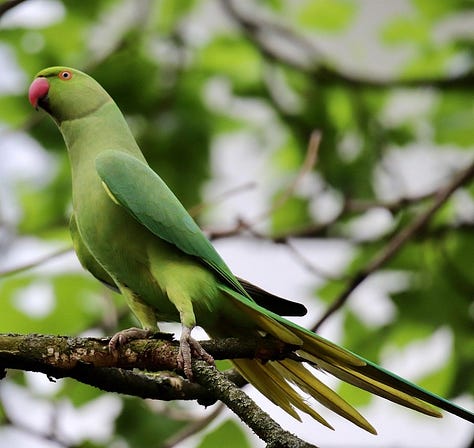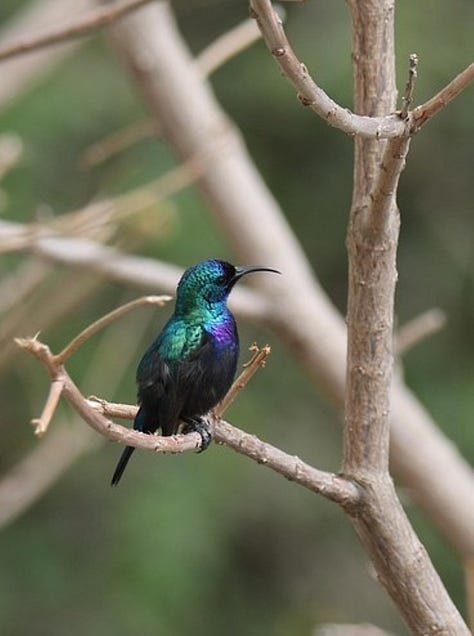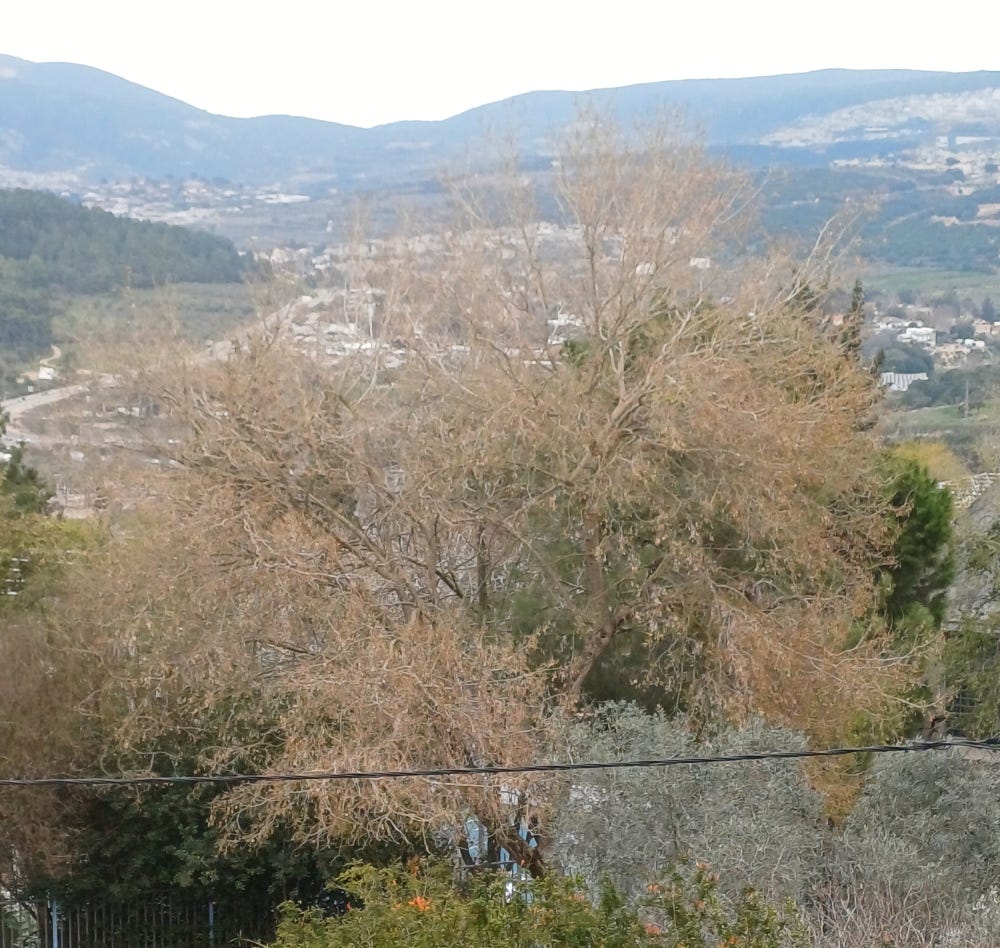Enjoying God's World
Thanking God for nature's beauty, for 4-8 year olds, with a recipe
I love spring, when the world seems to be waking up after the cold winter. Flowers start to bloom. Birds flit around. They sing cheerful songs.
Judaism has special blessings we use to say "thank you" to God. He made this amazing world. He wants us to notice good and pretty things and to thank Him for them. We can just say, "Thanks, God!" We can also use special blessings. I like to say the ones that Jews have said for a very, very long time.
From my window I saw that the gray branches of a tree began to look kind of pink. The pink was from tiny flowers. Two weeks later the tree turned yellow-green. The yellow was pollen from the flowers. The green was baby leaves. Pollen blew around like yellow dust. It turned the stones of my walk yellow. It also made many people sneeze.
On Shabbat I saw that my neighbor's cherry tree suddenly had lovely white flowers. Downstairs in my neighbor's garden, her peach trees were full of pink blossoms. The boring brownish-gray branches of winter are now covered with beauty. I said "Thank you, God!" using one of those very old blessings.
Like many other blessing, this begins with the words, Blessed are you, Lord our God, King of the Universe:
Blessed are you, Lord our God, King of the Universe, whose world doesn't lack anything, oh God who made amazing creatures and beautiful trees for people to enjoy.
Enjoy The World God Created
We say this blessing once a year, the first time we see fruit trees in bloom. This blessing reminds us to notice all beauty in nature, not just the fruit trees. The blessing says, "amazing creatures." This reminds us that God created animals for us to enjoy while they are alive. We have other blessings for when we use plants and animals for food.
Years ago a mama possum lived in my yard. Almost every morning she walked across the top of my fence. One day I realized that possum keep their babies in a pouch, like kangaroos. The tiny hands of the possum babies poked out at mama possum’s tummy. They waved in the air. Mama Possum ate my garden plants, but it was still fun watching her!
God could have created the world in black and white, but He made it with beautiful colors. Watching birds is an easy way to see colorful creatures. From the bench by my door I see big black-and-gray hooded crows, bright green ring-necked parakeets, tiny, shiny blue-black sunbirds, and others.



God also created lovely smells. We use one blessing during Havdalah, when we end the Sabbath and begin the new week. That blessing is:
Blessed are you, Lord or God, King of the Universe, who created many lovely fragrances.
We also say this blessing at other times when we smell lovely things in nature.
In that blessing, "fragrances" is plural: it means more than one lovely smell. Because of this, many Jews have both cloves and cinnamon in our spice boxes. In Israel, many Jews use sweet-smelling branches or leaves from their gardens.
What if you don't know the blessing?
Many years ago, before I knew all this, I traveled by bus from Tel Aviv to Haifa in early spring. Today there's a wide highway with buildings on both sides. But back then, the road was narrow. Orchards stood on both sides of it. The smell of sweet orange blossoms filled the bus. I remember thinking, "Heaven must smell like this!"
When I learned about the blessing over things that smell nice, I thought, "I should have made a blessing on those blossoms!" Then a rabbi told me that if we don't know a blessing, we should just say, "Thank you, God, for making this!"
There are many more “blessings of appreciation,” special ways to thank God for things that we enjoy. There are also blessings for things we experience but don’t like so much, like thunder and lightning. They all remind us that God made our amazing world. They also remind us that it is always good to say “Thank you.”
Learning the traditional blessings is good. But when we are young and haven’t learn them, if we forget them, or if we never learn them, we can just use our own words. What's important is that we look at the world and really see it. We should notice the colors, shapes, sounds, textures, and smells, and thank God for this beautiful world.
For Parents, Teachers and Others
Nature and Judaism is such a huge subject that it can only be explained by a huge textbook or, as I am doing here, little by little. Israel, where I now live, is an amazing country geographically. I live in a small city in the mountains of Galilee, and the beauty of this place reminds me constantly of God’s magnificent creation.
When I lived in the USA, I found that many Jews thought that Judaism is not concerned about the environment. This is false, but its focus is different. One important difference is that at its foundation, the modern movement is based on the concept that humans have destroyed nature and that nature is as important, or more important, than people. Judaism teaches the opposite. As Genesis explains, God created the world, then at the end of Creation He made people to take care of the world. The problem has been that by and large, people ignore (if they ever heard of) God’s laws about the environment.1
The Talmud is full of instructions on how we are to treat nature and take care of it. The laws are very complete and include many laws that sound very modern. But when the Torah and Talmud were written, there were far fewer people in the world and they lived extremely simply in comparison with today. The world was, to those people without any modern conveniences, vast, and they were small upon it. Today, many of us are so crowded into small areas, and we can do so much damage just by our huge numbers, that we forget that we aren’t all-powerful. But the Talmudic laws are still relevant.
What is the difference between a blessing and a prayer?
Blessings are a special kind of prayer. They serve three purposes:
They are the thank-yous that we give to God, the words with which we express appreciation to Him.
They are also praise to God,
They ask God to bring His blessings to the world.2
The morning service is the longest. The weekday service includes three sections:
Praise recognizing God as Creator and his love for us
Recognition of who God is and what He expects from us
Petitionary prayer in which we ask for blessings and protections as a community, that is, for all Jews as a family, not for us individually.
Other prayers are included at different times. For a deeper look, see The Synagogue Prayer Services.
The Jewish liturgy includes blessings, psalms, other poems, selections from the Torah and ancient Rabbinic writings, and more. Free-form, personal petition is not part of a traditional religious service. It is not discouraged—it is just personal.
A Spring Recipe
This is my version of a popular Israeli recipe. I don’t like lettuce salads in the winter, but come spring I want greens. This is one of my favorites.
Parsley, Cilantro and Cranberry Salad
Salad
25 mint leaves
Parsley, a bunch with stems removed
Cilantro, a bunch
5 green onions
jalapeno or other green chili pepper, finely cut (to taste)
1/3 cup of dried unsweetened cranberries or raisins
1/3 cup chopped, toasted almonds
shell-less pumpkin seeds, sunflower seeds, and/or other seeds, optional
Dressing
3-4 Tbsp. olive oil
1 Tbsp. maple syrup, silan (date syrup), or honey
Juice of one lemon
salt
Directions
Chop all the vegetables into small pieces. Add the fruit and nuts. Mix the salad dressing, being sure to dissolve the sweetener. Mix the dressing and salad.
Coming Soon
You might notice a new tab on the TanteHannaWrites homepage, Collections. In this tab I will be putting easy-to-copy texts (without the pictures) that can be used in lessons as well as just for fun.
An aside here: We Jews understand that the Five Books of Moses are Moses’s notes that he took to remind himself of the details as God dictated the Torah to him. He then spent the remainder of the 40 years that the Jews were in the desert teaching them the complete law. The Talmud, which was written down many centuries later, was that Oral Law that Moses Taught, plus many interpretations. The world is so vast and complicated, not to mention the complexities of time, that arguments have always been common, and many have been immortalized in the Talmud. An ancient Jewish joke: Two men come to the rabbi with an argument. The rabbi listens to the first, thinks a moment, nods and says, “You’re right.” Then the other man speaks. The rabbi listens, thinks, nods, says, “You’re right.” The two men say, “How can we both be right?” The rabbi thinks, nods, and says, “That’s also right.”
Simmons, S., Blessings in Judaism. Aish, https://aish.com/16-blessings-2/, accessed March 19, 2025.
Other Sources
Using new software always has a learning curve. In the process of writing, the footnotes fell out of my main essay. Here are sources I used:
https://www.chabad.org/library/article_cdo/aid/961313/jewish/Cutting-Down-Fruit-Trees.htm, accessed March 16, 2025.
Wastefulness: It's Not Yours! Chabad.org, https://www.chabad.org/library/article_cdo/aid/938181/jewish/Wastefulness.htm, accessed March 16, 2025.
The Cow that Kept Shabbat. Pesikta Rabbati 14, Chabad.org, https://www.chabad.org/library/article_cdo/aid/810791/jewish/The-Cow-That-Kept-Shabbat.htm , accessed March 16, 2025.
History of Animal Exploitation. CrateFree USA, https://cratefreeusa.org/history-animal-exploitation/, accessed March 16, 2025.




Hanna, this is a lovely wonderful lesson.